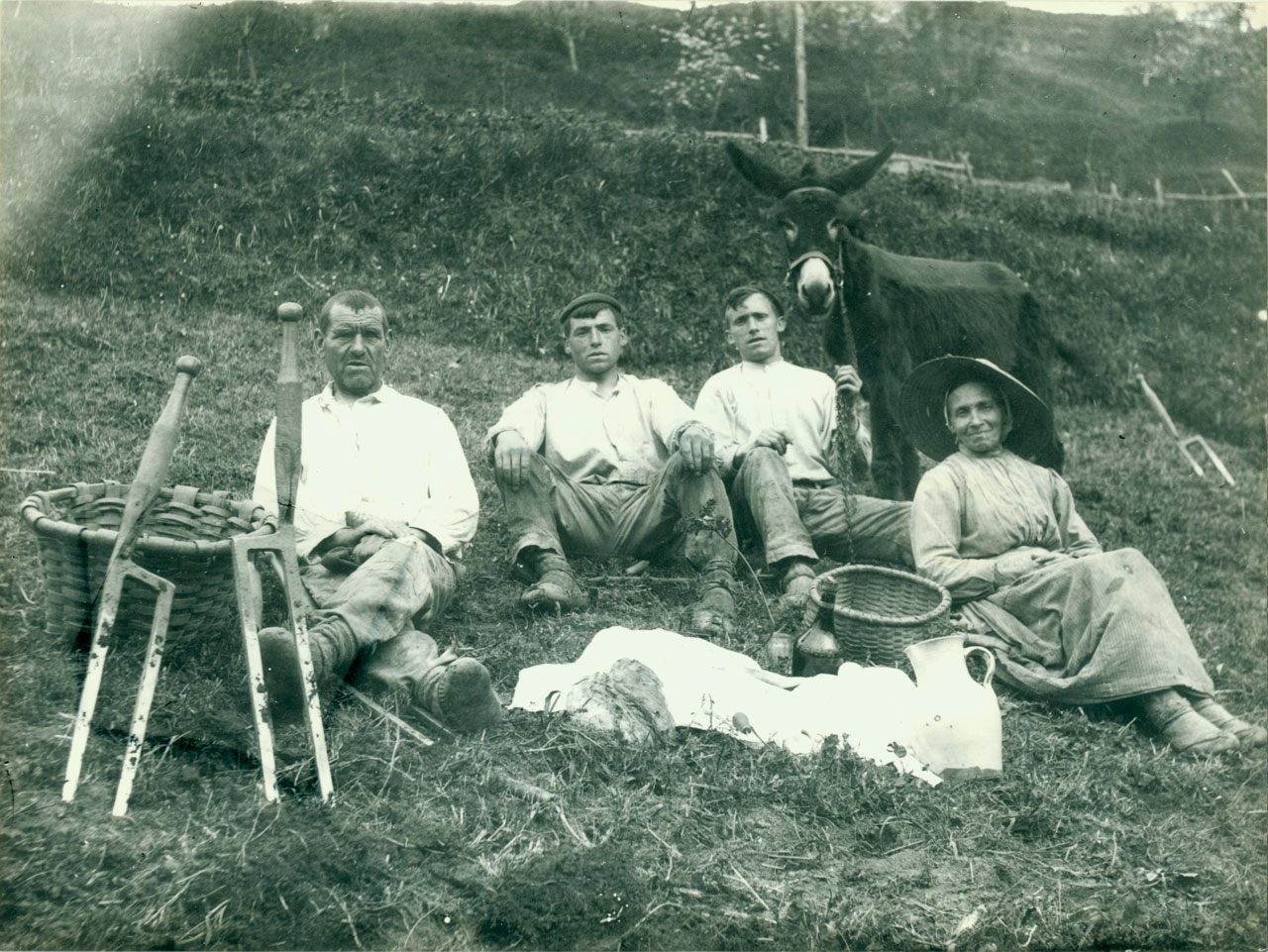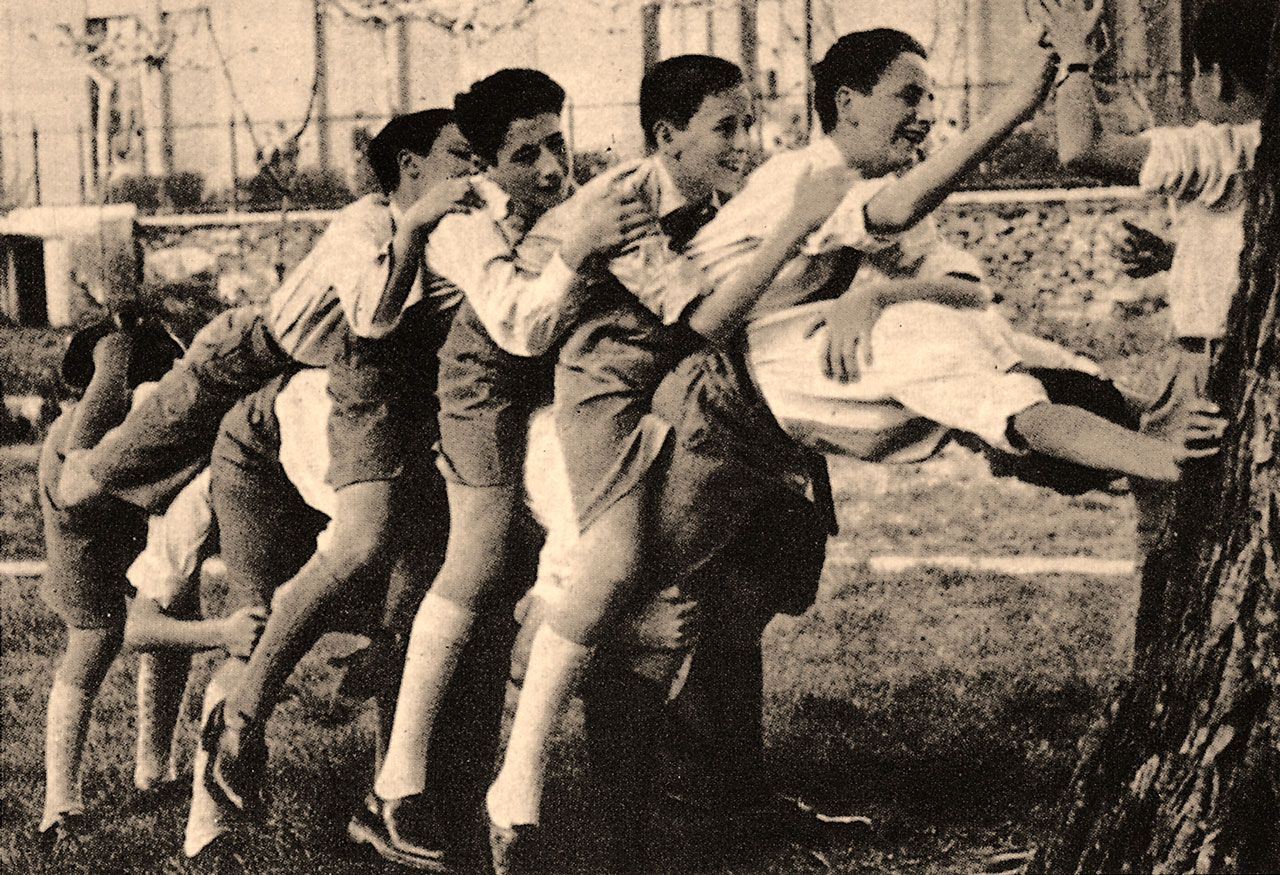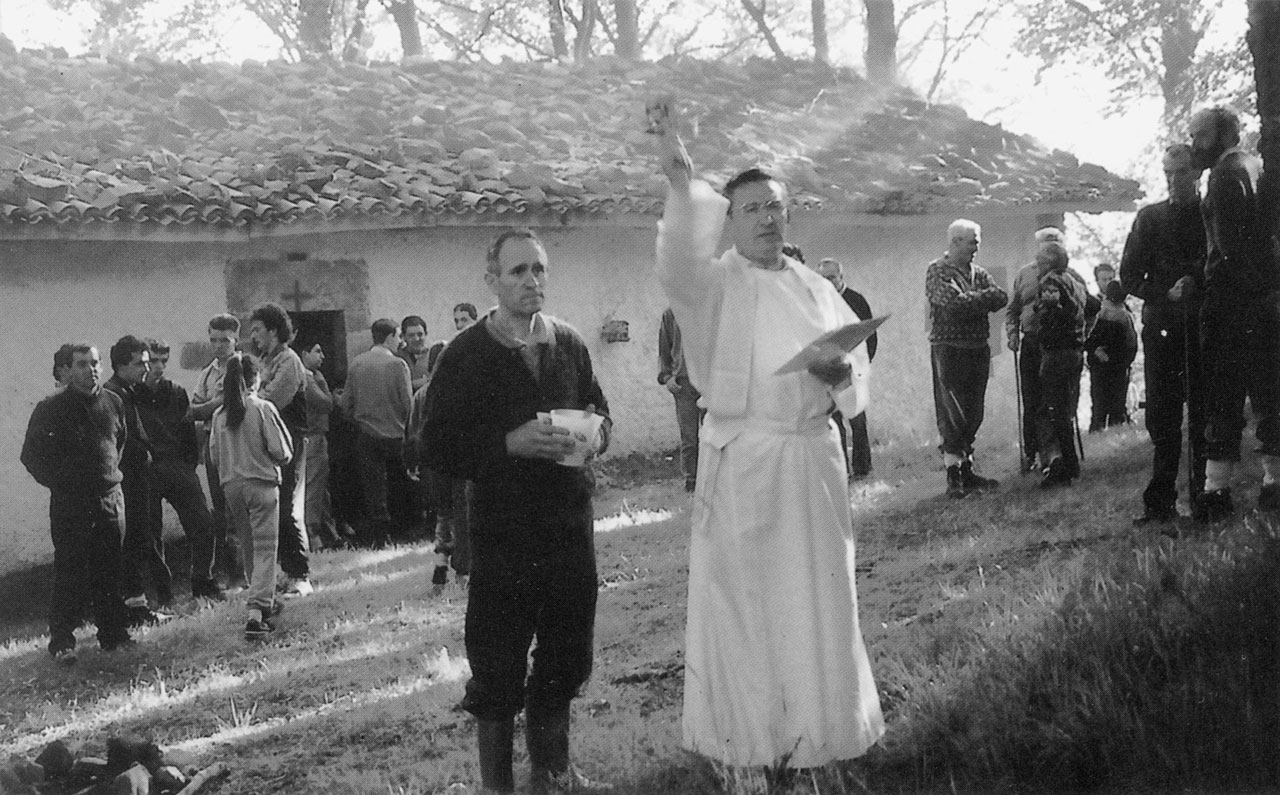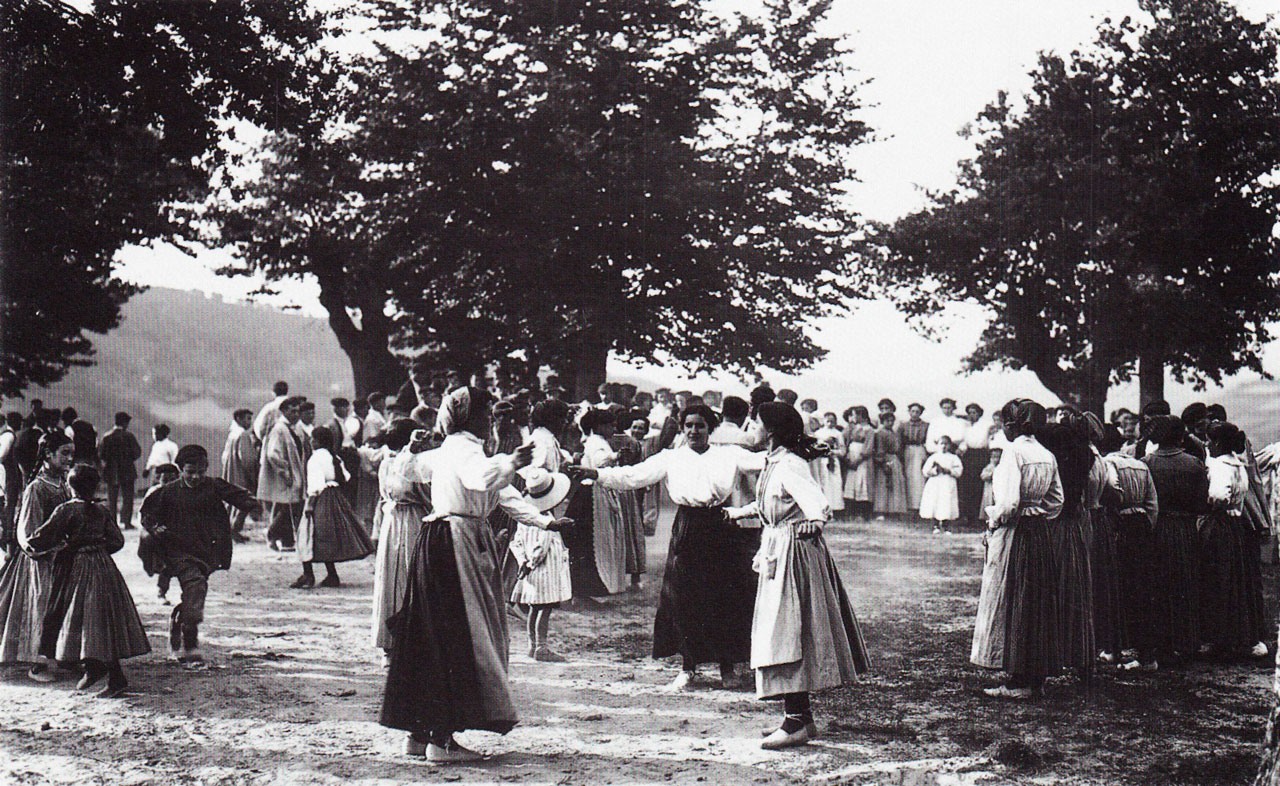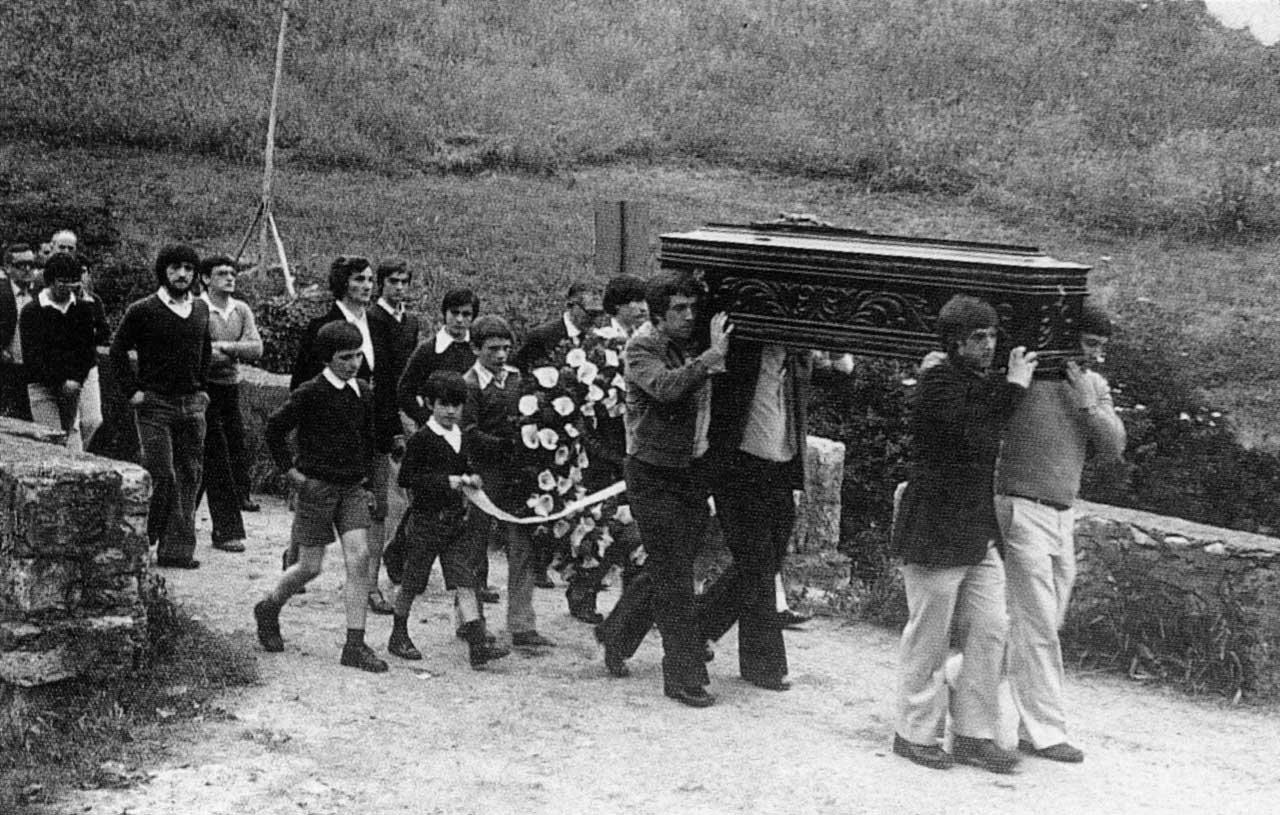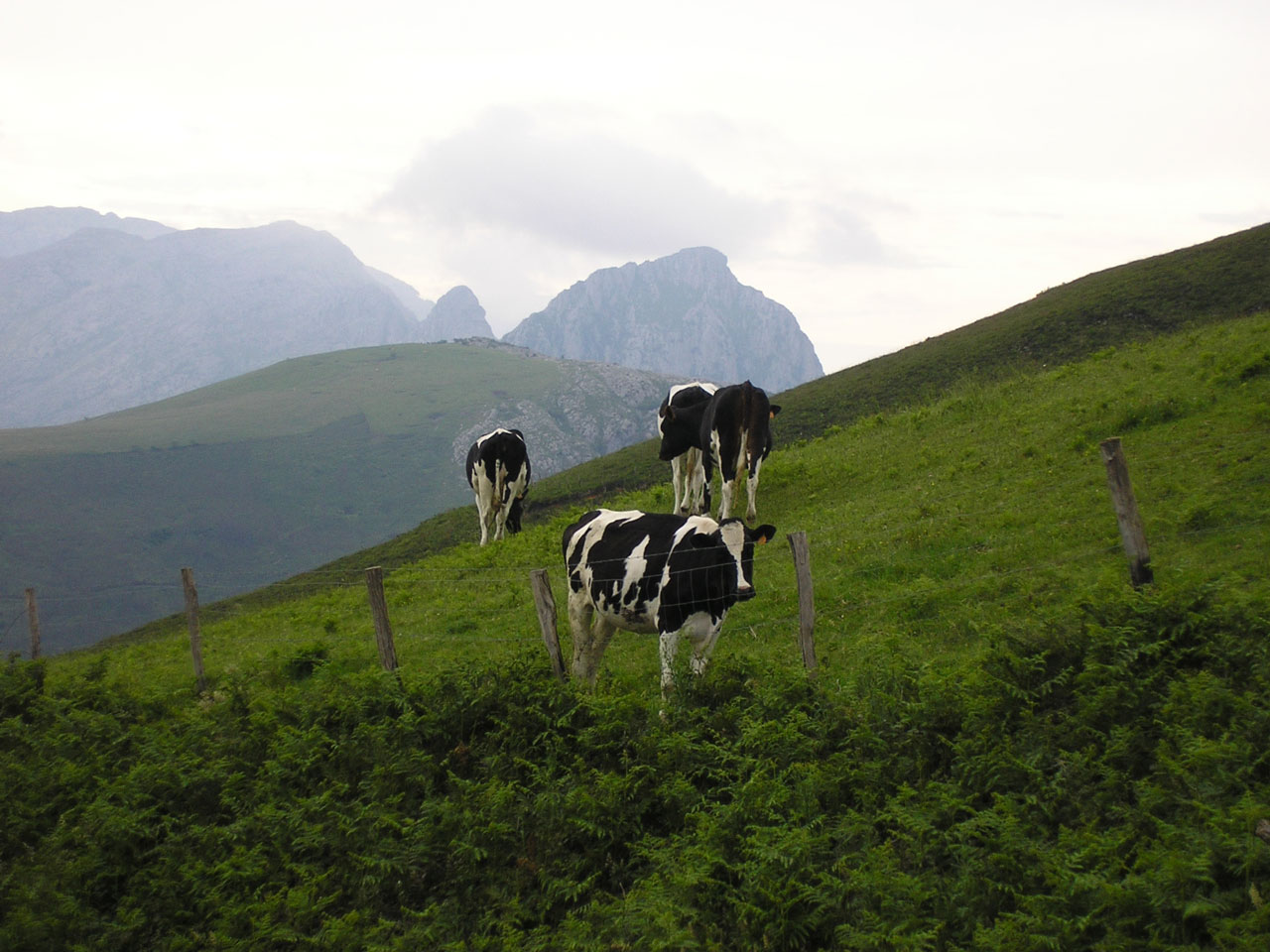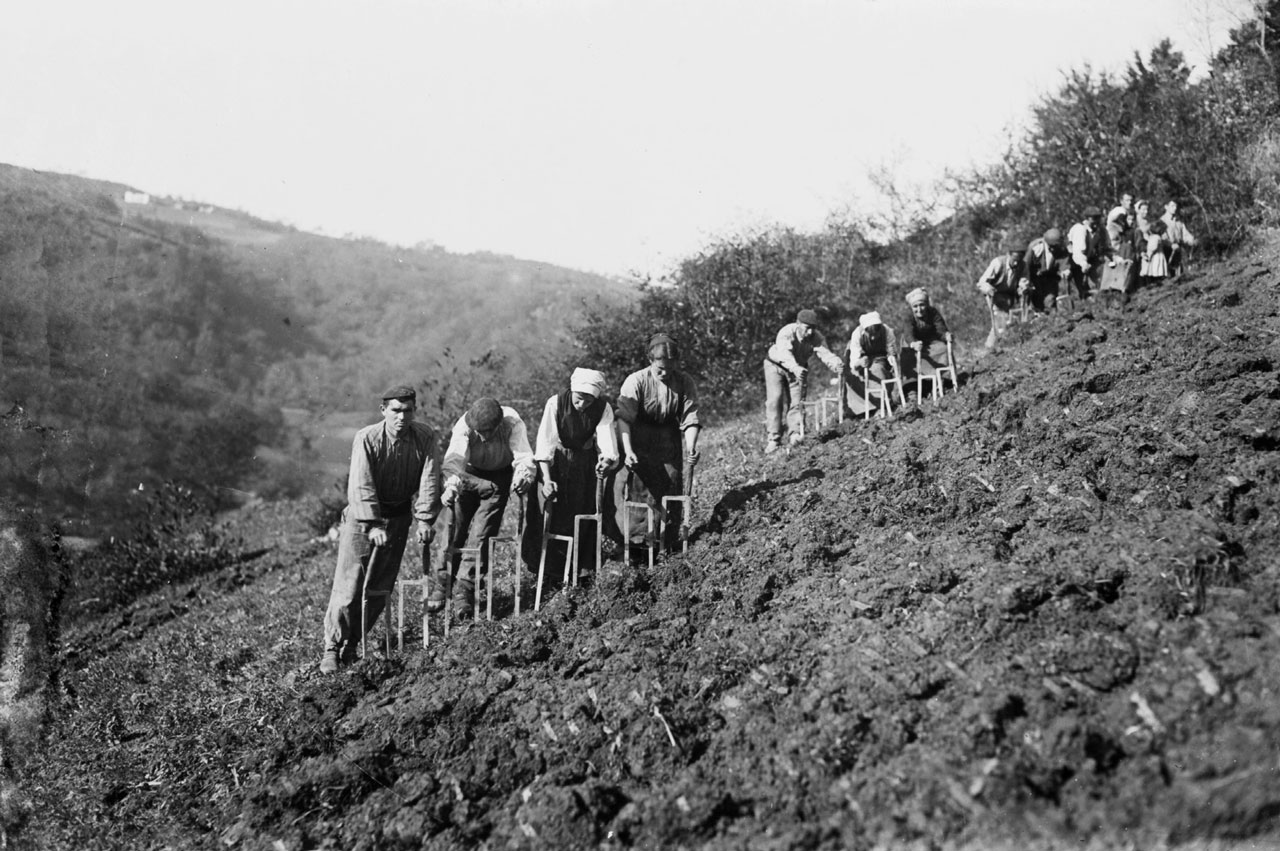Main Page/en
De Atlas Etnográfico de Vasconia
Revisión del 17:53 28 ene 2020 de Admin (discusión | contribuciones)
Zurututza Farmhouse. Zeanuri (B), c. 1925. Source: Labayru Fundazioa Photograhic Archive: Felipe Manterola Collection.
House and Family in the Basque Country


House and Family in the Basque Country
Etxeko habeak, etxeko berri. A fool knows more in his own house than a wise man in another’s.
Family Diet in the Basque Country


Family Diet in the Basque Country
Goseak dagonarentzat, ogi gogorrik ez. The famished make a feast out of bread crumbs.
Vegetal clothing and accessories. Egozkue (N), 1967. Source: José Zufiaurre, Etniker Euskalerria Groups.
Children’s Games in the Basque Country


Children’s Games in the Basque Country
Akerrak adarrak okerrak ditu, adarrak okerrak akerrak ditu, okerrak adarrak akerrak ditu. Tongue-twister
Traditional Medicine in the Basque Country


Traditional Medicine in the Basque Country
Ez da gaitzik aldiak ez daroanik. Time cures everything.
Dancing during patronal celebrations. Zeanuri (B), 1922. Source: Labayru Fundazioa Photograhic Archive: Felipe Manterola Collection.
Rites from Birth to Marriage in the Basque Country


Rites from Birth to Marriage in the Basque Country
Young men and women would meet during the Sunday stroll, dances and pilgrimages.
Funeral Rites in the Basque Country


Funeral Rites in the Basque Country
Death was an event that usually occurred in the neighbourhood, a fact that meant the home of the deceased played a leading role.
Cattle on common pastures. Carranza (B), 2007. Source: Luis Manuel Peña, Etniker Euskalerria Groups.
Livestock Farming and Shepherding in the Basque Country


Livestock Farming and Shepherding in the Basque Country
Communities in areas where livestock has been the fundamental basis of their way of life consider Saint Anthony Abbot as the main protector of the health and fertility of the animals.
Agriculture in the Basque Country


Agriculture in the Basque Country
Spades, ploughs, rakes, sickles, scythes and threshers were the essential tools for agricultural work.

